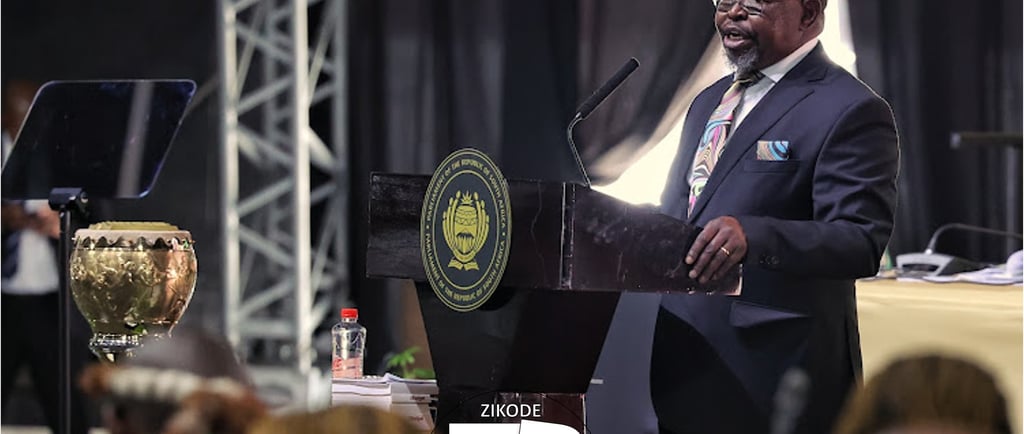GOVERNMENT IMPLEMENTS REFORMS IN BUDGET TO STRENGTHEN MUNICIPALITIES AND DISASTER RESPONSE
Acknowledging the challenges posed by disasters, Minister Godongwana emphasized the need for a proactive approach.
EZOMPHAKATHI


GOVERNMENT IMPLEMENTS REFORMS IN BUDGET TO STRENGTHEN MUNICIPALITIES AND DISASTER RESPONSE
Finance Minister Enoch Godongwana has announced a series of critical reforms in the latest budget speech aimed at improving local government performance, disaster resilience, and conditional grant management. These measures are designed to enhance service delivery and financial sustainability across municipalities and key sectors.
CONDITIONAL GRANT REVIEW
To eliminate duplication and improve efficiency, the government is implementing the first phase of a conditional grant review. This includes merging grants in basic education and agriculture. Additionally, performance-based conditional grants have been introduced for metropolitan municipalities. These grants will be tied to institutional, governance, and financial reforms aimed at improving public service delivery.
BUILDING DISASTER RESILIENCE
Acknowledging the challenges posed by disasters, Minister Godongwana emphasized the need for a proactive approach. The current disaster management system is heavily skewed towards relief and rehabilitation instead of preparedness and mitigation. To address this, the government is simplifying access to emergency funds and improving grant mechanisms to enable municipalities to better respond to crises.
Over the medium term, R1.7 billion has been allocated for future disaster responses, while R4 billion is set aside for addressing recovery backlogs in provinces and municipalities. The budget also seeks to incentivize municipalities to explore alternative funding instruments, including insurance and contingency reserves.
STRENGTHENING LOCAL GOVERNMENT
The decline in municipal services has prompted the government to accelerate interventions under Phase 2 of Operation Vulindlela. The institutional framework of local government will be reviewed, with updates to the White Paper on Local Government.
The review of the local government fiscal framework will assess how municipalities can be appropriately funded based on their functions. Additionally, reforms targeting revenue-generating services such as water, sanitation, electricity, and refuse removal are underway to enhance financial sustainability.
Six of the eight metropolitan municipalities have met the minimum criteria for participation in the Urban Development Financing Grant, which incentivizes municipalities to meet specific governance and financial management targets. These measures will help municipalities create an environment conducive to long-term infrastructure investment.
A VISION FOR THE FUTURE
Minister Godongwana reiterated that the budget reflects a realistic assessment of the country’s economic position while proposing policy choices that will ensure the sustainability of public finances. He emphasized that these choices are aimed at achieving tangible benefits for all South Africans by ensuring better service delivery, financial stability, and resilience in the face of crises.
Drawing on the words of Pan-African leader Amilcar Cabral, he reminded Parliament that the government’s priority is to improve the quality of life for citizens by making bold and necessary policy decisions.
The Finance Minister concluded his speech by expressing gratitude to President Cyril Ramaphosa, Deputy President Paul Mashatile, and all key stakeholders involved in shaping the budget. He also extended his appreciation to South Africans for their trust and patience as the government works towards economic recovery and improved governance.
